It doesn’t matter what kind of fishing you do, watercraft is the single most important thing you need to get a handle on. Whether you’re targeting carp in a lake, barbel in a river, rays on a beach or, bass on lures, knowing your quarry is a skill that is vital to effective angling.
In this bass focused series of blogs, I could write for hours about bass fishing watercraft and all the different places bass can be found and then target, but, I will keep it as simple as I can. These blogs are aimed at newcomers to the sport or those who are looking for a bit of improvement. Having said that, if you’re an experienced angler, you may well find a nugget of information in here for you too.
Bass are incredible fish when you think about it. They can be caught over wrecks in 200ft of water and, similarly, can be caught in just six inches of water in an estuary system. They’re at home weaving through a thumping surf on a wild Atlantic beach, yet, they’re happy to be mooching around calm bays and coves too. The one thing we can learn from this diverse range of habitats, is that we should never limit our searches too narrowly, and to keep an open mind. If there is food available, there is a good chance a bass will arrive at some stage to take advantage.
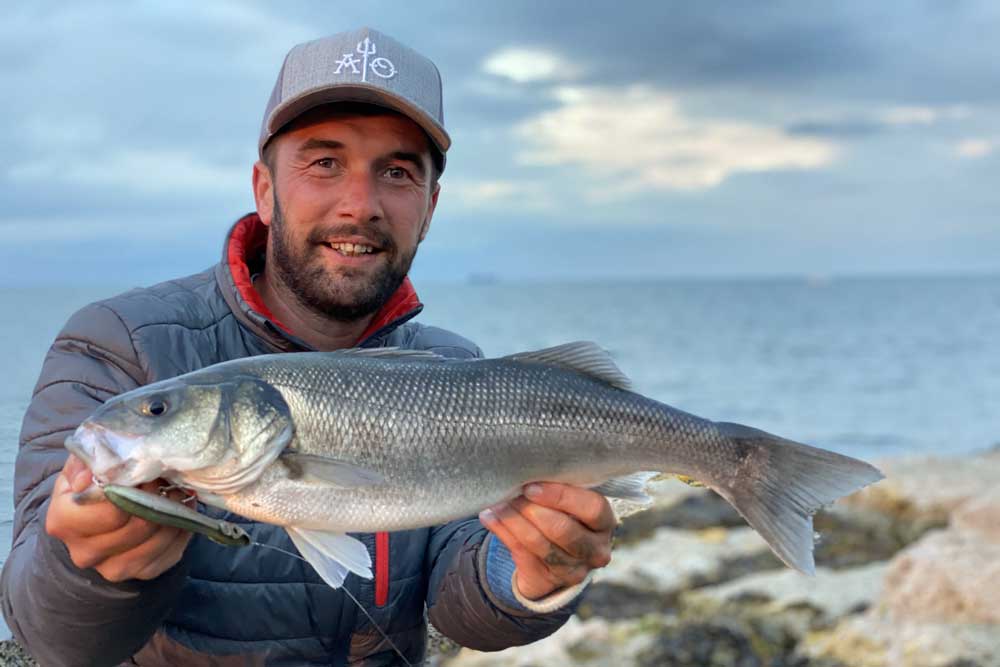
The bass is an accomplished hunter and scavenger, they know how to find a meal. They’ve become specialised locally on certain food sources before they expire and move on. So, my first tip is to think carefully about the kind of prey that is available for them to eat in the area you are thinking of targeting a bass.
To achieve this, you’ll need to do some good homework. The best way to do this, is to get out there, no rod, just some good polaroids, sturdy boots, a head torch and start scanning your marks for signs of food.
Are the pools full of prawns? Gobies? Blennies? Can you see sandeels in the shallows on a sunny day? Are birds working just offshore, taking small fish? Are there peeler crabs hiding under bladderwrack or buried in soft sand and mud under stones?
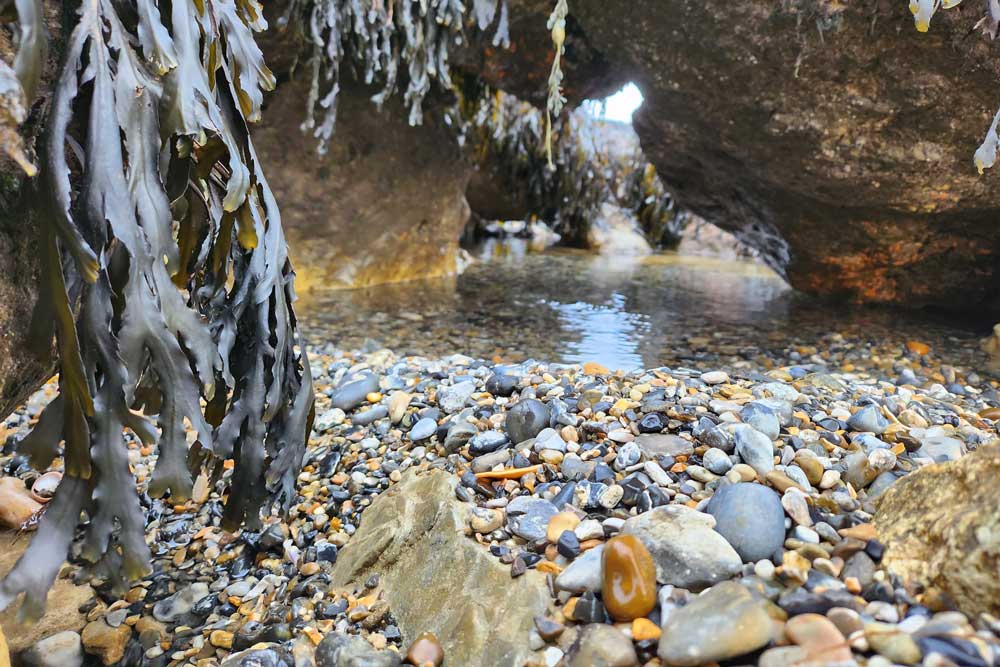
All of the above and more, you can get into a zone where bass will arrive at some stage to take advantage.
But, I hear you say, where do we even start looking for all of this!
Let’s take a look at the classic types of ground you can reasonably expect to target bass and hone your watercraft.
Estuaries
A great place to start and often overlooked is the humble estuary. They’re a staple haunt of a bass from juveniles right through to very large bass. Bass love brackish, even almost freshwater, and will travel a long way upstream. They’ve been caught by pike and barbel anglers before now! For the standard type of bass fishing though, check out the estuary creeks and gullies, especially those that contain crabs, prawns and, a feature I always look out for in my angling, is bladderwrack. Bass love bladderwrack, it holds their dinner. Fish these estuary areas across all state of tide until you find a pattern. Personally, I have a soft spot for the last of the ebb or the first of the flood.
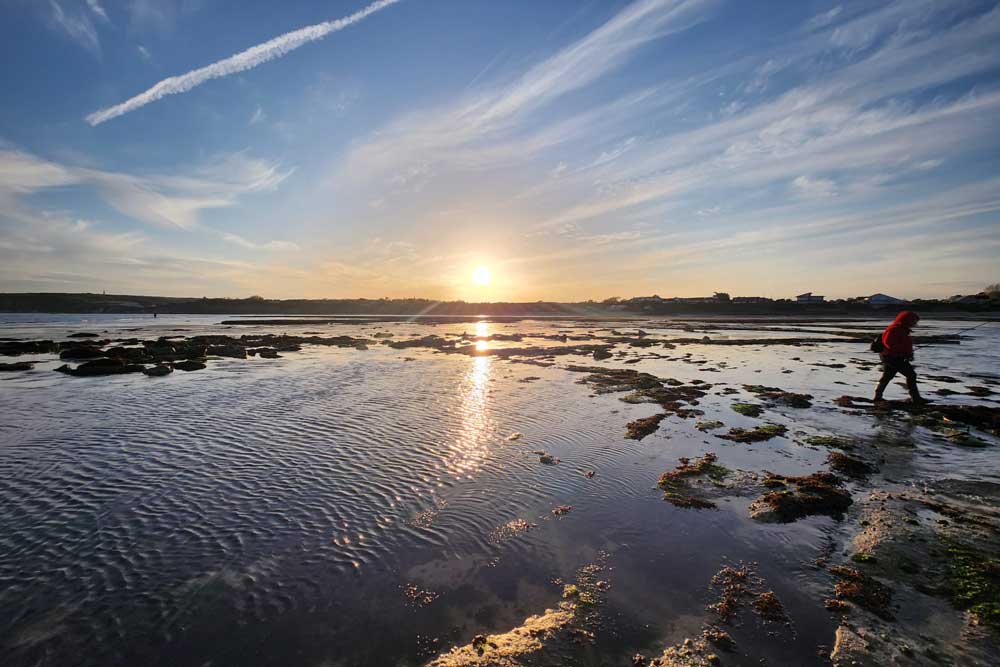
Surf Beaches
Secondly, and probably the most classical place to find a bass is a nice clean surf beach. Read any of the historical literature on bass fishing across the ages and there will be a surf beach in there, somewhere. From the pounding surf beaches of Ireland, Cornwall, and Wales – many of our angling greats honed their watercraft skills fishing these wild strands for bass.
Surf beaches offer bass an advantage over small prey items such as sandeels, whitebait and sprats. Firstly, fishing surf beaches with metals such as our HTO Pathfinder or HTO Flip Flop, on a clean, not too big surf, from May onwards, offers some exciting fishing. Cast perpendicular or horizontally to the beach, allowing the waves to work your lures, is a great way to catch bass. Waders are essential, but, please be careful and scope the beach over low tide for gullies and bars before fishing. Don’t fish if it's too rough, and consider a lifejacket.
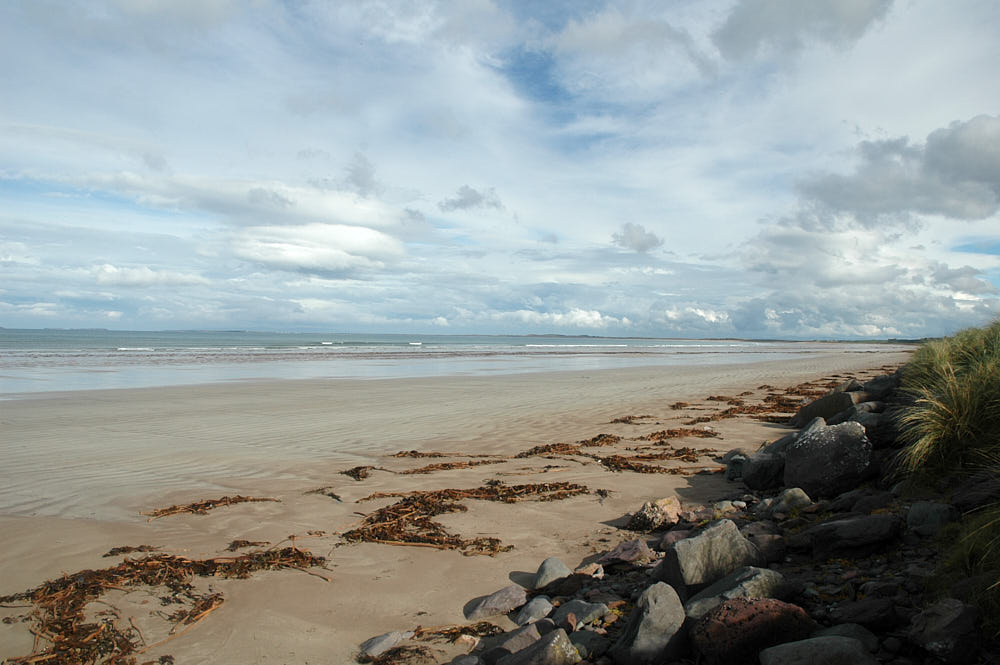
Reefs
My fishing is conducted over reefs. Reefs come in many shapes and sizes, depths and variations of rough and weed. They all, however, offer the same characteristics. They offer cover, water disturbance and, once again, they give the bass advantage over their prey. For me, top waters over a reef in shallow water is the ultimate way to fish a reef system. First light, watching the water as I work an AXIA Glide over the surface, to then, watch the calm, tranquil water turn into a white explosion as a bass slurps the lure. This, is the pinnacle of lure fishing.
Equally, sneaking down to these marks and swinging a HTO Slim Snax or other weedless, weightless, sot plastic over som heavy ground in the dark, can ignite your senses like nothing else.
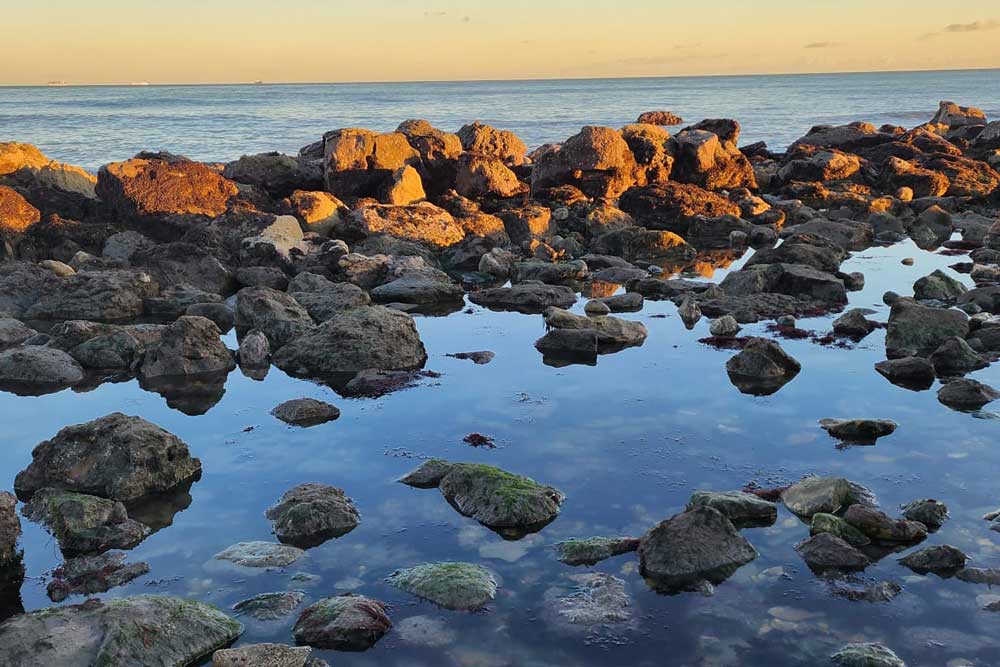
I love to find these spots over big, spring low tides and plan my attack. I map out the gullies and pinnacles, the areas of bladderwrack. Likewise, I have intimate knowledge of the low tide rock pools that hold gobies and prawns, and then I’ll fish for them, on a dark, muggy, calm night with a new moon.
The common themes above are finding areas where there is food, cover, and an advantage for the bass over their prey. Watercraft is about understanding your quarry, whatever type of fish it is.
Find out what it eats, where it lives, and you’ll find the bass. Then log your efforts over the various tides, conditions, and times of year.
This is where a fishing diary is helpful to build your watercraft knowledge, whether you write it by hand in a notebook or as a note on your phone (there are many good diary and note-taking apps for all phones). A diary will help you remember your sessions and allow you to look back at the best times and conditions to go fishing. Don’t rely on your memory, it can be unreliable at the best of times!
There is a code, cliché perhaps, but it is up to you to crack at least some of it.
Be Lucky – Rhys.


